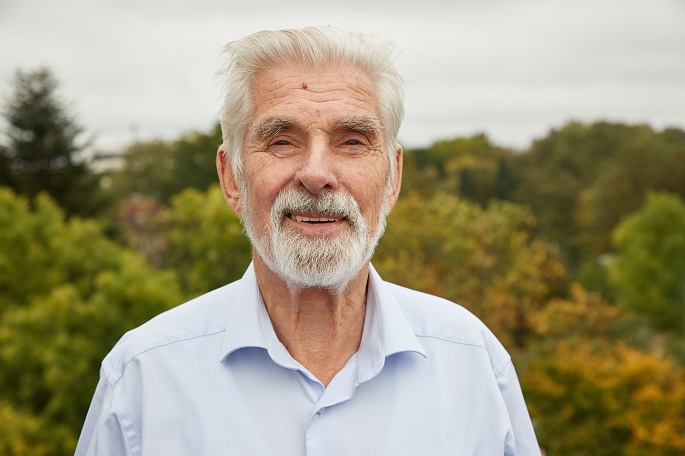Hasselmann delighted at Nobel win
Published : 06 Oct 2021, 03:01
The scientific principles behind climate change got a boost on Tuesday as this year's Nobel Prize in Physics went to a trio of researchers whose work has helped the world understand complex systems, including those governing climate, reported dpa.
Syukuro Manabe, Klaus Hasselmann and Giorgio Parisi won the prize.
Parisi, of Italy, was honoured for his work discovering "hidden patterns in complex systems," the the Royal Swedish Academy of Sciences said.
His work makes "it possible to understand and describe many different and apparently entirely random materials and phenomena, not only in physics but also in other, very different areas, such as mathematics, biology, neuroscience and machine learning."
The other half of the award is to be shared between Japanese-born researcher Manabe and Hasselmann, a German scientist working in Hamburg, for "the physical modelling of Earth's climate, quantifying variability and reliably predicting global warming."
Manabe is known for demonstrating decades ago how rises in carbon dioxide levels in Earth's atmosphere were leading to higher temperatures. According to the academy, his work laid the foundation for current climate models.
Hasselmann built on that work a decade later by constructing a model that linked weather and climate, looking at the interaction of natural phenomena and human activities. His work showed why climate models can be reliable despite the difficulties of predicting weather and is the foundation of current climate models.
"The discoveries being recognized this year demonstrate that our knowledge about the climate rests on a solid scientific foundation, based on a rigorous analysis of observations. This year’s laureates have all contributed to us gaining deeper insight into the properties and evolution of complex physical systems," said Thors Hans Hansson, chair of the Nobel Committee for Physics.
The other half of the prize went to Italian physicist Parisi for his work on "the discovery of the interplay of disorder and fluctuations in physical systems from atomic to planetary scales."
The Nobel organizers said Parisi's discoveries were "among the most important contributions to the theory of complex systems."
The discoveries all "demonstrate that our knowledge about the climate rests on a solid scientific foundation, based on a rigorous analysis of observations," said Thors Hans Hansson, chair of the Nobel Committee for Physics.
The main theme, according to the committee, was the need to recognize new methods for describing and predicting the behaviour of complex systems.
But committee member David Haviland said another main goal is always to honour scientists who use physics to better explain the world. He noted global interest in climate change and said the presentation of the award drives home the point that researchers have "solid methods" for charting changes in weather and climate models.
The winners expressed surprise and joy at their win, but also urged the world to pay attention to what they had discovered.
"It is clear that for the future generations, we have to act now in a very fast way," said Parisi in an interview after the announcement.
Clear decisions needed to be made about how to confront global warming, he said.
Hasselmann said the prize was yet another vindication of his work in the 1970s, when he sought to prove that mankind was having an impact on the climate. Despite sceptics and outright deniers of climate change, he said efforts by young people, as seen in the Fridays for Future movement, are keeping the focus on his work.
"I think it's great," he said. "They've found a way to speak to the public in a way that we scientists haven't."
He said such movements give him hope that humanity will move away from greenhouse gases and switch to natural energy sources "without a major detriment for business."
Building on that, the head of the UN's meteorological organization, Petteri Taalas, welcomed the win as "great news."
"This is again demonstrating that climate science is highly valued ... We used to have a period when there were sceptics or deniers of scientific fact. The good news is that those tones are not so visible any more and this climate science message has been heard," he said.
"But the concrete action hasn't been ambitious enough so far. ... There's clearly a need to raise the ambition level. We cannot wait for decades to start acting," he added.
Later in the day, Italian President Sergio Mattarella and Prime Minsiter Mario Draghi thanked Parisi for the "honour" his win had brought to the country's scientific community. Draghi invited the scientist for a visit.


